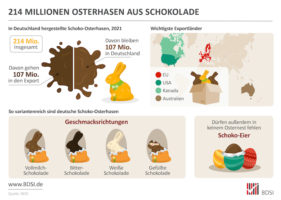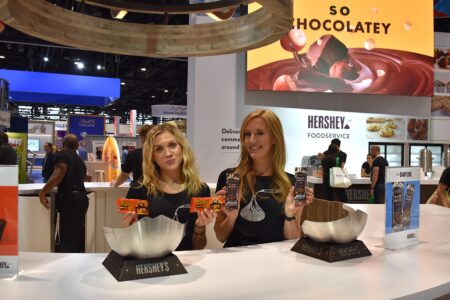German confectionery market produces over 200 million Easter bunnies

A member survey from the BDSI (Federal Association of Germans Confectionery Industry) has revealed that in the build-up to Easter, 214 million chocolate bunnies will be created within the nation, reports Neill Barston.
According to the industry body, half that figure will be for domestic retail operations, with the remaining 107 million destined for markets across Europe, US, Canada, Australia and South Africa.
The BDSI notes that the most popular product remains a classic milk chocolate Easter bunny, but other varieties made from dark or white chocolate, as well as decorative figures such as lambs, carrots or chick chocolates have also gained ground. The classic chocolate egg also remains another key favourite and will be high on many families’ lists for next weekend’s celebrations.
Furthermore, the organisation noted that chocolate using sustainably sourced cocoa is increasingly popular with consumers, and In 2020, the proportion of certified cocoa in the confectionery sold in Germany stood at 77%, which is up hugely from the BDSI’s first survey in 2011 that found a figure of 3%.

As part of core values for cocoa sustainability, improving living conditions of smallholders and their families, especially in West Africa, remain a key consideration, with Ghana and Ivory Coast producing nearly two thirds of global supplies. Many German confectionery manufacturers participate in or even have their own projects and programmes, which help farmers and their communities to improve income levels.
Other key measures considered central to sustainability efforts include helping increase crop yields and becoming more climate-resistant, to protect the wider environment, fighting deforestation and respecting human rights respect in the supply chain. This is done in close cooperation with everyone involved along the value chain.
The certification is a very important building block for the development a sustainable cocoa sector. In the main certification standards Fairtrade and Rainforest Alliance have strict requirements for the Prevention of Abusive Child Labor and by the respective organisations on site. Both seals stand for around 75% of the sustainable cocoa used. Also of great importance have comparable corporate programmes, which are regularly published by
independent third parties.



